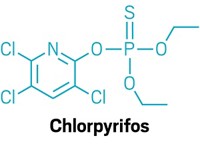Advertisement
Grab your lab coat. Let's get started
Welcome!
Welcome!
Create an account below to get 6 C&EN articles per month, receive newsletters and more - all free.
It seems this is your first time logging in online. Please enter the following information to continue.
As an ACS member you automatically get access to this site. All we need is few more details to create your reading experience.
Not you? Sign in with a different account.
Not you? Sign in with a different account.
ERROR 1
ERROR 1
ERROR 2
ERROR 2
ERROR 2
ERROR 2
ERROR 2
Password and Confirm password must match.
If you have an ACS member number, please enter it here so we can link this account to your membership. (optional)
ERROR 2
ACS values your privacy. By submitting your information, you are gaining access to C&EN and subscribing to our weekly newsletter. We use the information you provide to make your reading experience better, and we will never sell your data to third party members.
Environment
Government Roundup
March 31, 2014
| A version of this story appeared in
Volume 92, Issue 13
China’s limits on exports of rare-earth elements violate fair-trade policies, the World Trade Organization ruled last week. Chinese officials said they restricted exports of rare-earth elements, tungsten, and molybdenum to promote conservation, but the U.S. and other countries claimed the limits were aimed at helping Chinese companies.
EPA’s pace of issuing new regulations has slowed considerably since 2011, a report by the Congressional Research Service says. This is in part because the agency cleared out a backlog of rules, initially issued by President George W. Bush’s Administration, that courts sent back to EPA for changes.
The European Union will evaluate 120 commercial chemicals between 2014 and 2016 for possible regulation. The chemicals include several pesticides and phthalates as well as aluminum chloride, citronellal, methyl tert-butyl ether, nanosilver, oxybenzone, ß-pinene, sodium metabisulfite, titanium dioxide, triphenyl phosphate, and trixylyl phosphate.
A review of 20 years of data from nine University of California campuses and three national labs shows that industry-sponsored science does not inhibit innovation. It is more likely to result in patents and licenses than is federally funded research (Nature 2014, DOI: 10.1038/507297a).
California has moved to ban the sale of d-CON rat and mouse poisons. The action follows EPA’s efforts to ban the products because of unreasonable risks to children, pets, and wildlife. The manufacturer, Reckitt Benckiser, has refused to pull the products off the market.
Pharmaceuticals found at low levels in the environment pose little risk to the environment and human health, conclude assessments by Environment Canada and Health Canada. The two agencies examined 28 commonly prescribed drugs and determined that exposure to the general public is too low to be of concern.





Join the conversation
Contact the reporter
Submit a Letter to the Editor for publication
Engage with us on Twitter